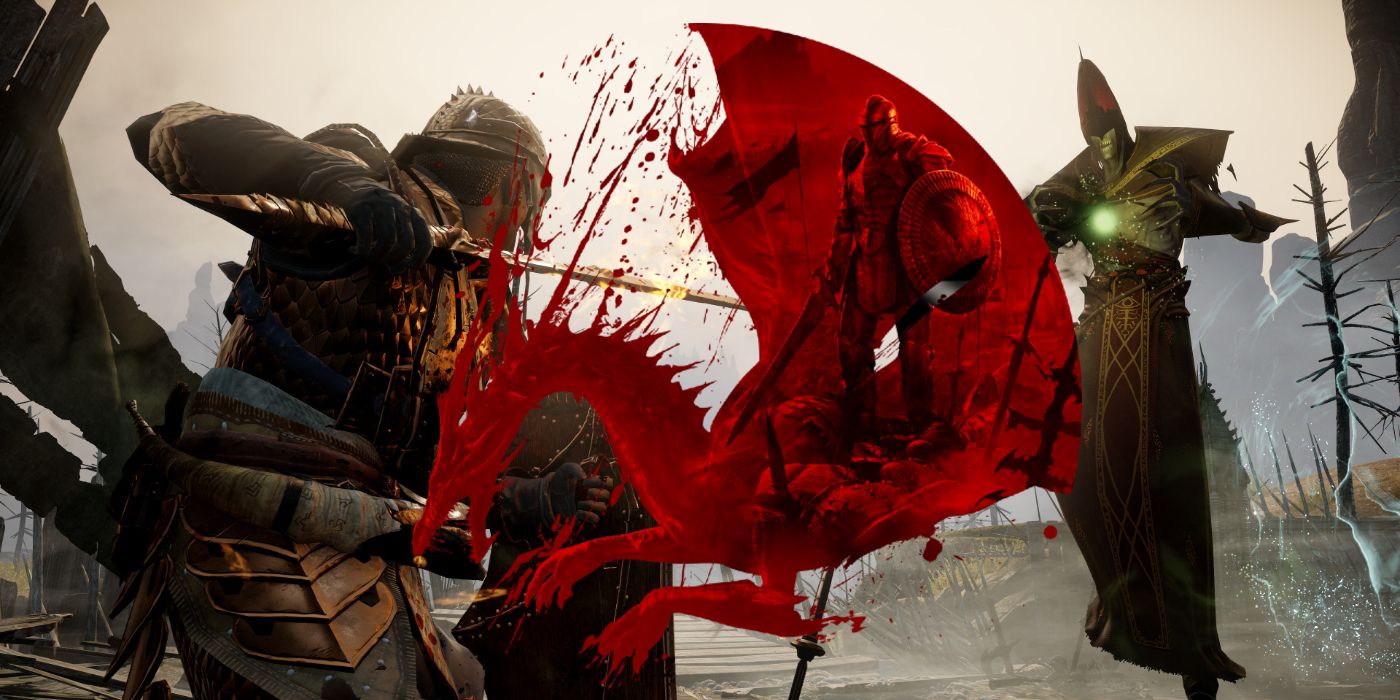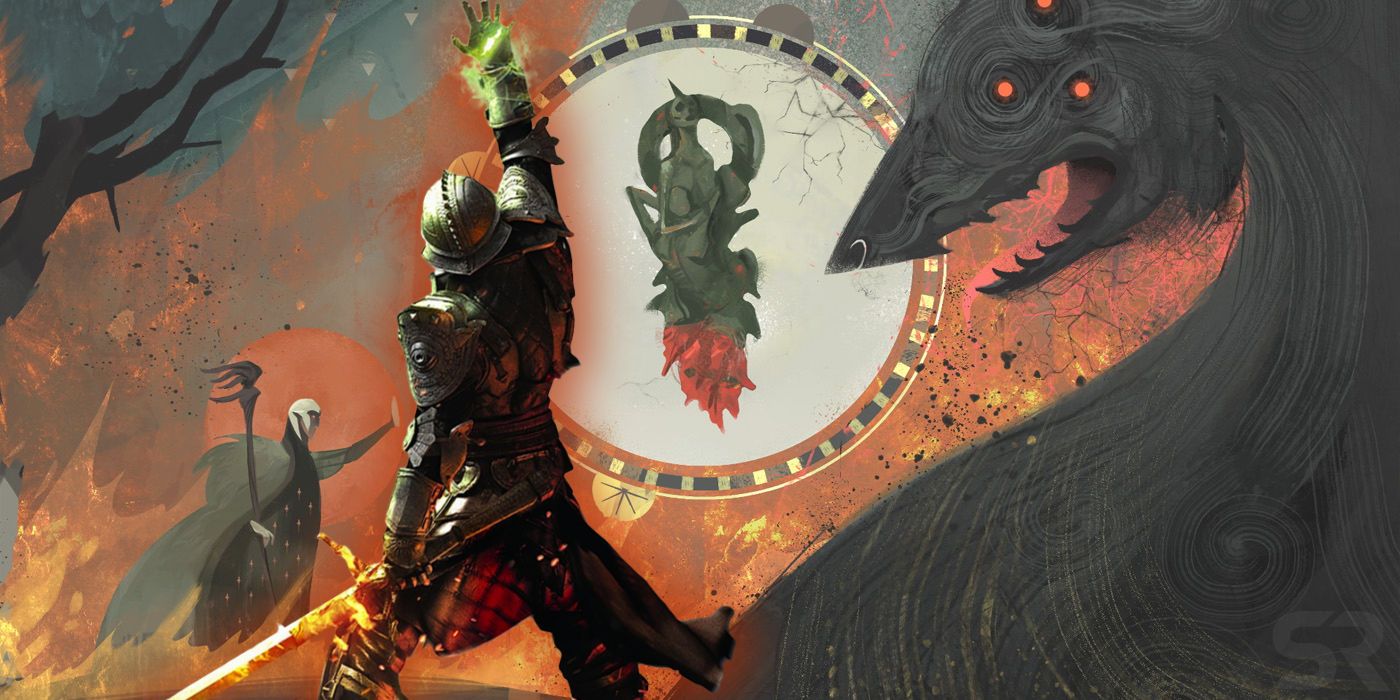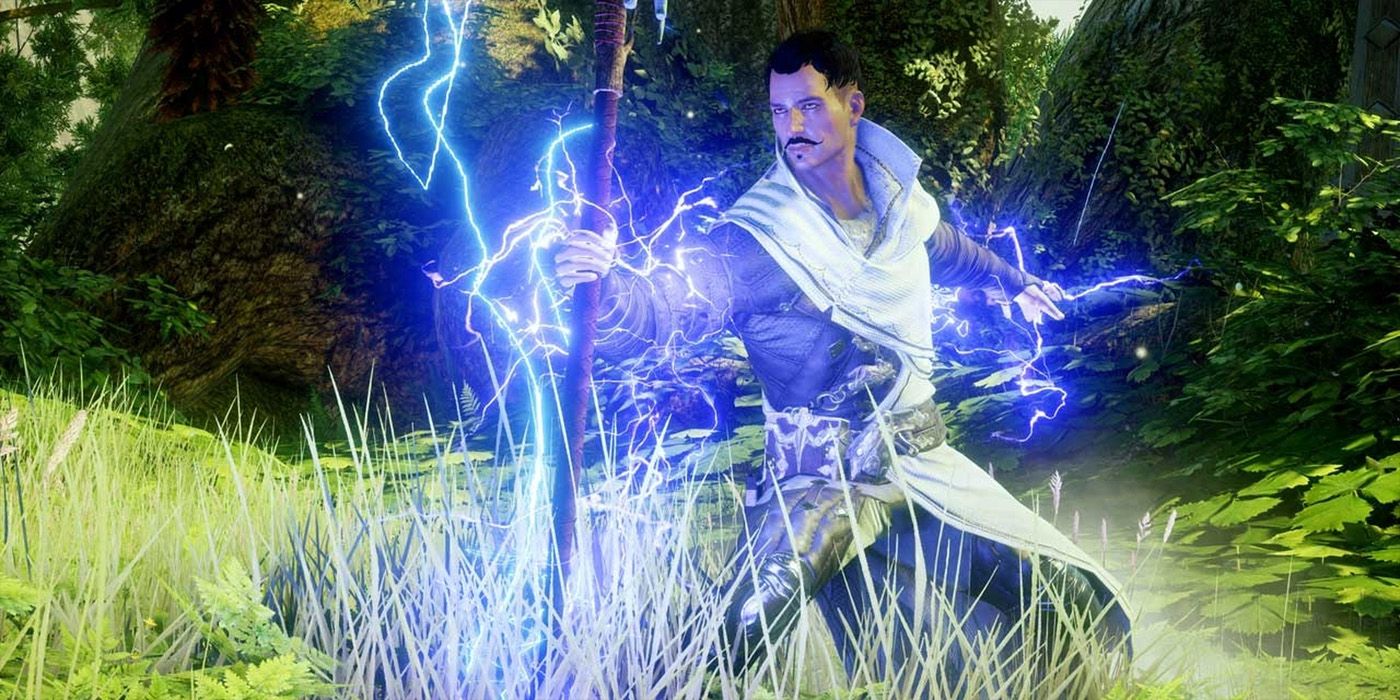It's no secret that BioWare is in rough shape when it comes to reputation. Just a few years ago, the common perception of the studio was that it could do little wrong; even Mass Effect 3, complaints of a paint-by-numbers ending notwithstanding, was considered a great RPG that innovated and managed to deliver a satisfying adventure for characters that had persisted over several years and stories. Sure, Mass Effect: Andromeda was pretty bad to start, but ultimately a lot of people have come around on the game now that some patches have been implemented and, perhaps more crucially, they've seen how awful things can really be. There isn't a lot of good to be found in Anthem currently, but at the very least, it's a useful historical example to point to whenever someone wants to suggest that something could be worse by comparison.
Things didn't have to be this way. A new report from Kotaku emerged earlier that detailed the canceled Dragon Age game that gave way to Anthem, and it's an eye-opening experience. Not only did that Dragon Age title sound like the exact sort of game BioWare is known for making and making well, it's also clear evidence that the studio had learned from the setbacks Dragon Age: Inquisition had experienced. The game was scrapped because Anthem was doing so poorly in development but, with the benefit of retrospect, that clearly wasn't the right call, and the canceled Dragon Age project was exactly the game BioWare desperately needs to bounce back from the disappointment that has colored the past few years.
Related: Dragon Age 4: The Best Theories About The Dread Wolf Rises
According to Kotaku, the canceled Dragon Age game was described by a former BioWare developer as a "hugely reactive game, smaller in scope than Dragon Age: Inquisition" but with more attention paid to player choice and consequence. The game was set in the Tevinter Imperium, the wizard-ruled country that is situated at the northern tip of the main continent of Thedas. Players would gain control of a group of spies that would navigate smaller areas and plan heists. The game was ready-made to continue the story that the Dragon Age: Inquisition Trespasser DLC had started, with a built-in villain ready to go and the Dread Wolf reveal maintaining the kind of impact that narrative beat deserved. In short, it was exactly the kind of Dragon Age adventure that fans wanted, and it sounded like it had learned from Inquisition in a way that would have blended that game's strengths into a new set of innovations to shore up its weaknesses.
The canceled Dragon Age game played to BioWare's strengths. It was inherently a single-player adventure that emphasized narrative and choice, two elements that have characterized the most successful titles the studio has released to date. It would have been a breath of fresh air when compared to Destiny 2, The Division 2, and others, rather than Anthem's stale riff on the genre. More importantly, it would have been an affirmation of EA's intent to let BioWare continue to make the game's that had made the studio famous in the first place.
Unfortunately, though, that never happened. It's too early to tell what we'll be getting instead, although it will definitely have a live service component, which seems to be something of a mandate for EA-owned games now. Instead of getting the evolution of a series that fans were literally willing to support by buying another game—there was a movement among Dragon Age fans to purchase Anthem as a "crowdfunding" measure for getting a new Dragon Age title—we'll be getting a much larger overhaul. While the franchise is no stranger to that, the disappointing thing is that it sounds like BioWare had completely figured out the right direction for the series. There was motivation, clear intent to craft a story that made sense with the gameplay being pitched, and pre-existing assets in the Frostbite Engine that would make production easier. By all accounts, that sounds like the exact sort of title that could get people excited about BioWare again.
Instead, it looks like another studio under the EA umbrella is suffering under its shadow. That isn't to say it's entirely EA's fault that BioWare wasn't able to make the canceled Dragon Age game a reality, but rather that the partnership is clearly draining both parties: EA of resources, and BioWare of the "magic" that used to characterize the studio's most exciting projects. BioWare is an equal contributor to the problem, with reports circulating about how difficult it has been to work there over the past several years and a string of unsuccessful games that have to be more than just the Frostbite Engine's fault.
Still, it isn't hard to imagine a different timeline where EA doesn't force BioWare to scramble to put out other fires. The canceled Dragon Age game continues through development, buoying the studio through the difficult Andromeda and Anthem launches. Fans of a series that desperately needs another good entry would be sated, and the reputation of BioWare would still be preserved through at least one of its IPs. To put it in terminology from a property EA perhaps has more familiarity with: BioWare could've used the lay-up of a classic, well-made BioWare-style game, but EA didn't even let the studio take the shot. Now, both companies are worse off, and the canceled Dragon Age game will live on in the memory of fans only. We won't write off the upcoming Dragon Age 4 game yet, but it's still early in development, and BioWare could really use a game like it right now instead.
More: Dragon Age 4 Is Still Years Away
Source: Kotaku



